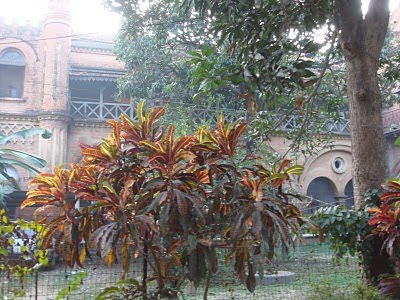


 The whole nation waited with bated breath, glued to television sets when the verdict was disclosed to the media at about 4.30 PM.
The whole nation waited with bated breath, glued to television sets when the verdict was disclosed to the media at about 4.30 PM.Muslim Board. On television Hindus displayed satisfaction and relief whilst the Muslims guardedly said they accepted the courts decision and would decide whether to challenge it in the Supreme Court.
Below is a news update from the New York Times website.
Rajesh Kumar Singh/Associated Press
Much of the detail and rationale behind the decision issued late Thursday by a three-judge panel in the state of Uttar Pradesh remained unclear. The court was expected to release the complete ruling only later in the evening. But lawyers in the case, interviewed on Indian news channels, said the panel had unexpectedly ruled by dividing the land in a way that gave something to both Hindus and Muslims after a legal battle that originated six decades ago.
The case focused on a site in the city of Ayodhya, which many Hindus have long claimed as the birthplace of the Hindu deity Ram, but which also was the site of a mosque, known as the Babri Masjid, built in the 16th century by India’s first Mughal ruler. In 1992, Hindu extremists destroyed the Babri Masjid, sparking riots that would claim the lives of about 2,000 people, mostly Muslims.

One of the central questions in the case had been whether a Hindu temple had existed on the site before the construction of the Babri Masjid. Lawyers in the case said the court’s ruling would reserve one-third of the land for construction of a temple to Ram, another third for another Hindu party to the case, while designating the final third for Muslims to build a mosque.
“The judgment is in favor of Hindus,” said H. S. Jain, a lawyer for one of the Hindu groups in the case. “The belief of Hindus that this is the birthplace of Ram is upheld.”

But Zafaryab Jilani, a lawyer representing one of the Muslim parties, denied that the ruling represented a loss to Muslims.
“There is no reason of any loss of hope,” Mr. Jilani said, noting that the judgment was several thousands pages long. He added: “We do not agree with the formula of giving one-third of the land to Muslims.”
Despite Thursday’s ruling, the court said that the status quo at the contested shrine would remain in place for three months. Lawyers representing both Muslim and Hindu groups said they would appeal the verdict to India’s Supreme Court.
The 1992 violence became a searing rebuke to modern India’s secular identity and deepened the religious passions invested in the Ayodhya case.
In recent weeks, India’s government has beseeched the public to remain calm, with Prime Minister Manmohan Singh and the leaders of the major political parties issuing appeals for peace.

By early Thursday evening, with the details of the case becoming public through television reports, there were no reports of protests or violence. Earlier, P Chidambaram, the home minister, had predicted the Indian public would respect the court’s finding.
“I think, India has moved on, young people have moved on,” he told the Indian media. “I think young people have recognized that the India story is much more than a dispute over a place where one religious group claims they are entitled to [rather] than another religious group.”

Indian leaders have warned that an eruption of violence might derail the economic and social progress the country had made since the 1992 outbreak. The destruction of the Babri Masjid occurred a year after the national government initiated reforms that have transformed India into one of the world’s fastest growing major economies, if also a country of deep inequality. Moreover, the political potency of the Hindu nationalist movement, which took the destruction of the Babri Masjid as a rallying cry, has since eroded.
Hari Kumar contributed reporting.

































 This led to riots in which over 2000 were killed.Ten days after the Babri Masjid demolition, the Liberhan commission was set up to probe the circumstances that led to the demolition.
This led to riots in which over 2000 were killed.Ten days after the Babri Masjid demolition, the Liberhan commission was set up to probe the circumstances that led to the demolition.









